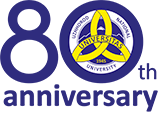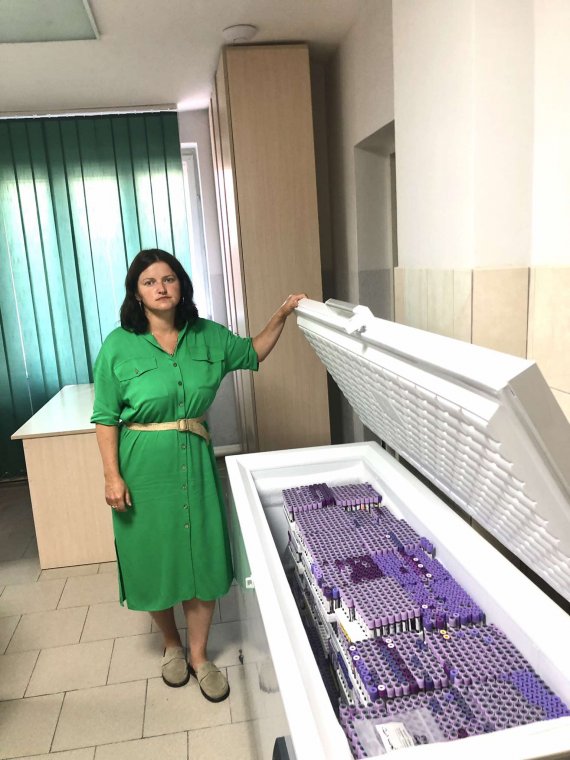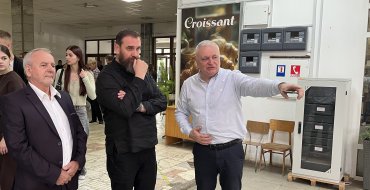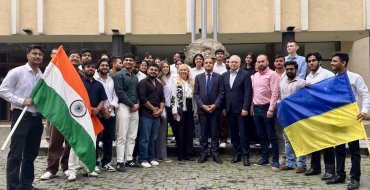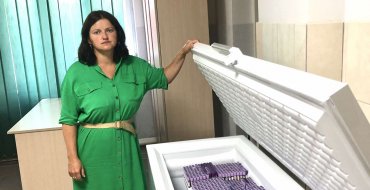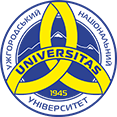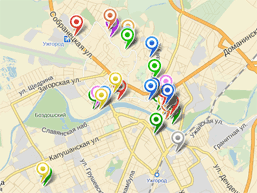Amid war, a Ukrainian genomics research program blooms
In the basement of a building that decades ago was a Hebrew trade school for boys, Yaroslava Hasynets opens a freezer packed with some 12,000 plastic vials. “Part of our genetic heritage,” says Hasynets, dean of biology at Uzhhorod National University (UzhNU). The vials contain DNA from an ongoing study of Ukrainians with type 1 diabetes (T1D) that UzhNU’s new genomics facility, to be inaugurated on 22 September, will mine for genetic insights.
Russian attacks, power outages, and parlous budgets have posed severe challenges to Ukrainian science. But a surprising hot spot for frontier genomics is emerging here in the foothills of the Carpathian Mountains near Slovakia and Hungary, taking advantage of Ukraine’s distinctive population—and scientists seeking refuge here from elsewhere in the war-torn country. Uzhhorod, named after the Uzh River snaking through it, has not been attacked and is widely considered “the safest place in Ukraine,” says Fyodor Kondrashov, an evolutionary genomics expert at the Okinawa Institute of Science and Technology who runs a bioinformatics and data science summer school here that draws participants from across Ukraine.
Still, on most scientific radars this tranquil haven is at best a faint blip. “A colleague joked Uzhhorod is a great place for a witness protection program for scientists, because nobody will ever look for you there,” says geneticist Taras Oleksyk of Oakland University, who was born in this city.
He is one of the movers behind the new genomics facility. As a faculty member of the University of Puerto Rico in the late 2000s, Oleksyk watched with envy as many European countries established national genetic databases, while his homeland largely remained a genomic black hole. “I thought, ‘What about Ukrainians? Who’s going to do this kind of effort for my country, if not me?’”
He got his chance in 2018, just before moving to Rochester, Michigan, when he initiated the first study on genomewide diversity in Ukraine, arranging for labs in China and the United States to sequence 97 Ukrainian genomes. In the journal GigaScience in 2021, Oleksyk and colleagues described 189 medically relevant alleles implicated in conditions such as autism and breast cancer, as well as 20 potentially protective mutations. He and Oakland biologist Khrystyna Shchubelka—also from Uzhhorod—then teamed up with Romanian scientists to sequence 150 genomes from each country as part of Genome of Europe, a continentwide genomic survey.
“All of a sudden, we had a system that works. Collecting samples, extracting DNA. We had an ethics committee,” Oleksyk says. That infrastructure attracted Regeneron, which in 2021 dangled support for a T1D study in Ukraine. Genomewide association studies elsewhere had implicated several dozen alleles in the disorder. But studies of variants found only in specific populations are scarce, Oleksyk says. After months of negotiations, the Leona M. and Harry B. Helmsley Charitable Trust came aboard to fund a $5 million Ukraine project—and ensure that the sequencing data would be publicly available.
Oleksyk had another asset: his sister. Endocrinologist Olga Oleksyk’s clinic in Uzhhorod has become a sanctuary for top specialists on metabolic diseases who fled occupied or embattled Ukrainian cities. To recruit T1D patients, she and Shchubelka linked up with 85 other endocrinologists and molecular biologists across Ukraine, gathering blood samples from more than 12,000 patients and healthy age-matched controls. The result, Taras Oleksyk says, is the largest T1D genetics study in the world. In some regions, Shchubelka says, “We don’t have any more patients with type 1 diabetes left to enroll. We got nearly everybody.”
“We need more data sets relevant to Ukraine, which is exactly what Taras and his team are doing,” says Serghei Mangul, a computational biologist at the University of Southern California. “And studying the population like this will be a great resource as Ukraine develops precision medicine.”
The UzhNU consortium has joined forces with colleagues in Poland to expand the study to include 20,000 patients and controls by mid-2027. So far, Regeneron has sequenced DNA from 10,000 samples. A key target is the human leukocyte antigen (HLA) system—a complex of genes that encode immune-regulating proteins and is known to be involved in T1D. The project hopes to zero in on alleles that elevate T1D risk and are more prevalent in Eastern Europeans.
The project is already paying a diagnostic dividend: A few dozen subjects appear to have maturity-onset diabetes of the young (MODY), a rare genetic form of the disorder that masquerades as T1D. Whereas T1D patients need daily insulin shots, MODY patients can be treated with oral drugs. The five MODY cases confirmed so far “got their true diagnosis and could start a new life, without insulin injections,” Olga Oleksyk says.
The new genomics facility intends to build on these findings by taking the sequencing in-house, using Oxford Nanopore Technologies’s PromethION 2 Solo, a DNA and RNA sequencer the size of a thick paperback novel. The company is sending a team to Uzhhorod next week for the lab’s inauguration and training. The device, more capable and versatile than earlier sequencers, will enable the team to find rare HLA variants in their T1D study participants, sequence RNA from stool samples to study their microbiomes, and sequence RNA from blood to examine gene expression patterns associated with T1D and inflammation.
The UzhNU facility is also launching a new study that will probe the microbiomes of about a dozen scientists who winter at Ukraine’s Vernadsky Research Base on the western Antarctic Peninsula. Because they eat the same food and don’t meet other people for months, “Our hypothesis is that their microbiomes gradually become more similar” during the yearlong deployment, says Mariia Pavlovska, a marine microbiologist with the National Antarctic Scientific Center of Ukraine. Another Oleksyk recruit—UzhNU’s Walter Wolfsberger—has formed a bioinformatics group to help make sense of the expected data windfall.
“In genomics, you can’t do anything alone, right?” Taras Oleksyk says. “My goal in whatever time I have left is to bring as much expertise to Uzhhorod as I can—and turn it into the Cambridge of Ukraine.”
